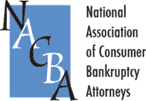
In most Ventura Chapter 7 bankruptcy cases, debtors have very little interaction with their case trustee and this often prompts our clients to ask, “What does the Chapter 7 trustee do?” We’ll explain their duties, but you should also know that if you hire an expert, expect your case to be well-planned and to go smoothly—with the likelihood that you will only meet your case trustee one time at your 341 meeting (see below). After that, you will receive your discharge and your fresh start!
As bankruptcy attorneys in Ventura, we are used to answering your questions. Our lawyers have filed literally thousands of bankruptcy cases and are some of the most highly qualified and experienced bankruptcy experts in the country. Among other things, this means that we speak with the case trustees all the time so our clients benefit from our solid relationships as well as our expertise.
So what are the duties of the Chapter 7 trustee? After a chapter 7 petition is filed, a case trustee or “Chapter 7 trustee” is appointed for that case by the Office of the U.S. trustee. This case trustee is impartial and serves as a representative of the creditors. It is his or her duty to “administer the case” and “liquidate” the debtor’s nonexempt assets.
In order to “administer” the case, the case trustee reviews the debtor’s paperwork and conducts a meeting of creditors. This “meeting” is held pursuant to Bankruptcy Code Sec. 341 and is typically referred to as the “341 meeting.” In most cases, this is the one and only time the debtor will see and meet the case trustee. The 341 meeting is a routine procedure in an informal setting (not in court) and debtors are accompanied by their lawyers.
It is common at the 341 meeting, or shortly thereafter, for the case trustee to determine that a debtor’s assets are fully “exempt” and that there are no assets available to “liquidate” for the benefit of some payment to creditors. To make this determination, the case trustee reviews the debtor’s paperwork (asset schedules and “exemption” schedule that you and your attorney have prepared, prior tax return, etc.) and asks the debtor some questions to make sure the information is accurate. In most cases, the case trustee completes his or her review at this stage and shortly thereafter files a “no asset report” with the court.
But what if there are assets in a Chapter 7 case? Well, then the case trustee lets the creditors know that they should file “claims” with the court. And the case trustee then has the duty to sell or “liquidate” the assets for the creditors. The trustee has the right to sell assets (assuming they are not exempt and protected for your benefit) because the Bankruptcy Code creates an “estate” with makes the trustee the temporary legal owner of the debtor’s assets.
The trustee also has “avoiding powers” which give the trustee the right, in appropriate cases, to set aside preferential transfers made to creditors within 90 days before the petition; to undo security interests and other prepetition transfers of property that were not properly completed (perfected) under state law at the time of the petition; and to litigate state law claims against third parties like claims for fraudulent conveyance.
If the case trustee does recover money for creditors from these liquidation activities, then the trustee distributes the money to creditors according to a set priority system that the bankruptcy laws provide in order to sort out the rights between creditors of different types (for example, secured creditors, administrative payment to the trustee for his or her efforts, tax authorities, unsecured creditors, and so on).
Most people with primarily consumer debts who file Chapter 7 don’t care about the case trustee’s duties or activities except for one area of concern: the debtor’s claims of “exemption” and whether the case trustee will challenge any particular exemption claim that they have filed. This is why you will need an expert Ventura bankruptcy lawyer for your case. Exemption laws are tricky and the paperwork that a debtor files includes an intricate set of “exemption claims” that, in most cases, will allow you to keep all of your property after bankruptcy. But if these exemptions are mishandled, you may lose property that could have otherwise been protected.
Are you considering a Ventura Chapter 7 bankruptcy case? We offer a free consultation to every person that has debt or financial challenges, even if you simply want to learn more about your legal options and have no present intention to file bankruptcy. Get some expert advice for free. Call us at (800) 551-7922 today.









